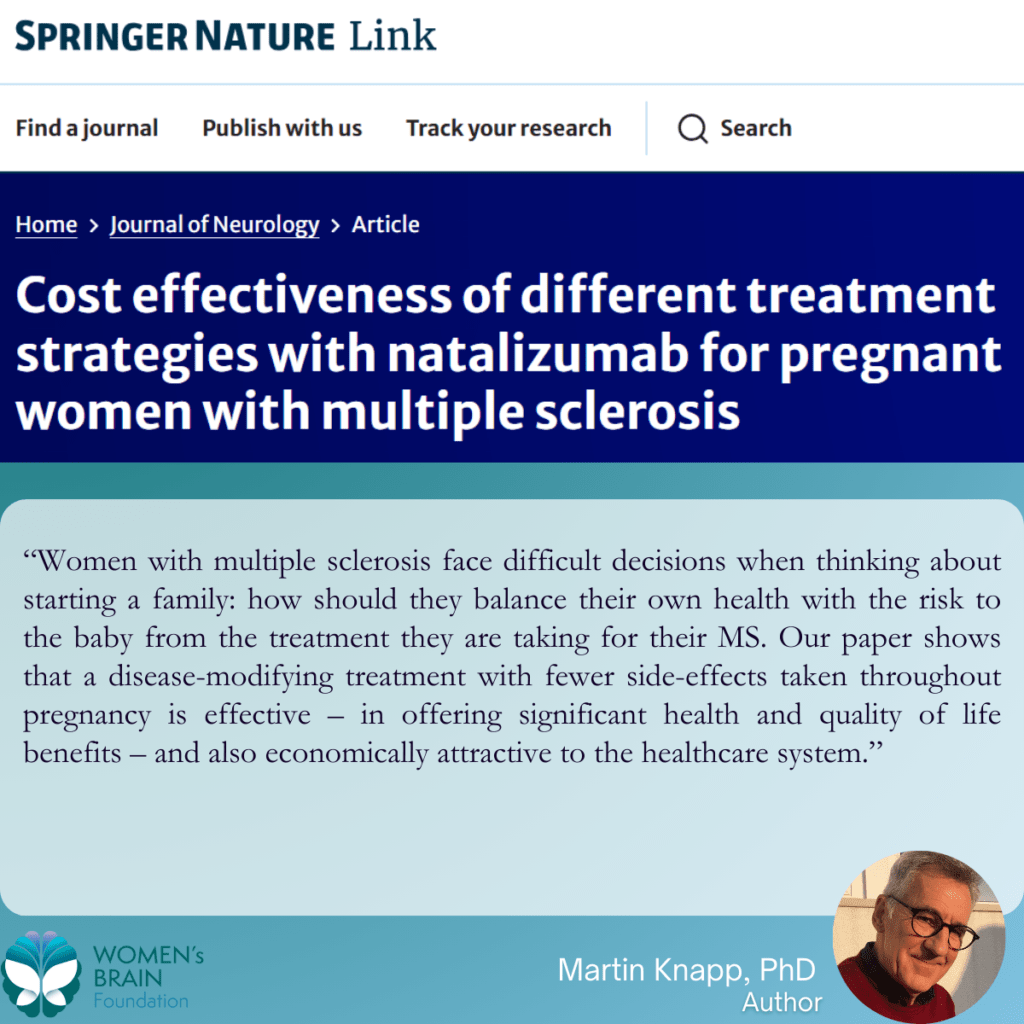Bridging Gaps in Women's Healthcare: Pregnancy Should Not Justify the Exclusion of Treatment Strategies for Multiple Sclerosis
Press Release | Zurich, Switzerland | 08 January, 2025
A groundbreaking study conducted by the Women’s Brain Foundation in collaboration with the London School of Economics has identified continuous natalizumab treatment throughout pregnancy as the most cost-effective strategy for managing multiple sclerosis (MS) during pregnancy versus discontinuations. This pivotal research highlights significant benefits in both health outcomes and cost savings, underscoring the importance of maintaining disease-modifying therapies for eligible patients during pregnancy.
The study utilized a Markov cohort simulation model to evaluate health outcomes and costs associated with three treatment strategies: continuous natalizumab throughout pregnancy, discontinuation after the first trimester, and discontinuation before conception with resumption post-pregnancy. The model incorporated data from published studies on relapse rates, disability progression, and costs, with quality-adjusted life years (QALYs) as the primary effectiveness measure.
Findings revealed that continuous treatment resulted in the highest quality-adjusted life year (QALY) gains, with the lowest incremental cost per QALY (£1,713) and a net monetary benefit of £743. Additionally, the use of generic or biosimilar natalizumab further improved cost-effectiveness, with biosimilar options proving to be cost saving.
Dr. Antonella Santuccione Chadha, Founder of the Women’s Brain Foundation and a leading advocate for sex- and gender-informed medical care, emphasized the importance of these findings:
“This collaborative research underscores the critical need to prioritize women’s health through evidence-based, tailored treatments. Ensuring optimal care for women with MS during pregnancy not only improves their health outcomes but also delivers cost-effective solutions for healthcare systems. These results reaffirm our commitment to advancing precision medicine that accounts for the unique needs of women across all stages of life.”
Dr. Martin Knapp, one of the authors and Professor of Health Economics at the Care Policy and Evaluation Centre, London School of Economics and Political Science, added:
“Women with MS face difficult decisions when thinking about starting a family: how should they balance their own health with the risk to the baby from the treatment they are taking for their MS? Our paper shows that a disease-modifying treatment with fewer side-effects taken throughout pregnancy is effective – in offering significant health and quality of life benefits – and economically attractive to the healthcare system.”
This study, led by the Women’s Brain Foundation in partnership with the London School of Economics, provides essential insights for healthcare providers and policymakers. It highlights the need to support continuous natalizumab treatment during pregnancy to improve outcomes for women living with MS while mitigating costs for healthcare systems.
This work was supported by Roche.
Contact information
Email: info@womensbrainproject.com
Website: www.womensbrainproject.com
About WBF
The Women’s Brain Foundation (WBF) is an international non-profit organization based in Switzerland harnessing the brilliance of a global team of scientist and doctors. Our experts hail from diverse fields, collaborating with patients to integrate sex and gender considerations into precision medicine, from basic science to novel technologies. The WBF is at the forefront of conducting, coordinating, supporting, and advancing sex- and gender-based research with the aim of advancing precision medicine. As both an incubator and accelerator of innovation, WBF is dedicated to promoting breakthroughs in women’s brain health.




